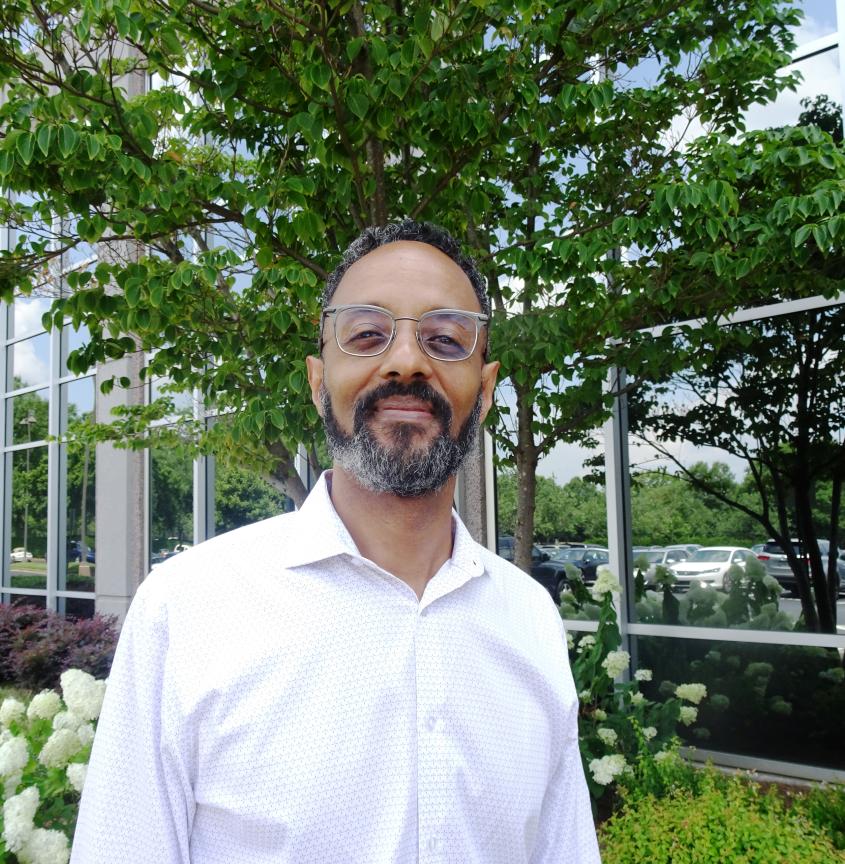G. Sylvester Price, D.V.M. ’84, finds niche in pharmaceutical research
G. Sylvester Price, D.V.M. ’84, was so eager to become a veterinarian when he was 10 years old that he wrote a letter to the American Veterinary Medical Association (AVMA) with a simple question: “Please let me know how I can do that.”
He received a pamphlet back from the AVMA and years later, majored in biology at Brown University as preparation for attending veterinary school. After enrolling in the College of Veterinary Medicine at Cornell, however, Price’s career goals expanded when he realized he was interested in internal medicine.
“When I started vet school, I had no idea that I would have aspirations to become an internist, but halfway through vet school, it was very clear that I liked the ability to have a deeper focused understanding in one area,” he said. “All the diseases — renal, liver, intestinal, endocrine — I found them all very fascinating.”
Instead of taking a position as a veterinary clinic immediately after graduation, Price completed seven additional years of training and schooling. He did an internship at the Animal Medical Center in New York City and then became a resident in small animal internal medicine at North Carolina State University (NCSU). His interest in becoming an academic clinician prompted him to pursue a PhD at NCSU, focusing on experimental cancer therapy.
Price joined the faculty at NCSU and spent nine years at the university. He then decided to pursue a career in industry as a research and development scientist. His first position was as a scientist Ethicon Endo-Surgery, Inc. in Cincinnati; he later worked in managerial scientific roles at Boston Scientific in Boston, Conor Medsystems/Cordis in Silicon Valley, and Edwards Lifesciences in Irvine, Calif. In these positions, he focused on demonstrating the safety and efficacy of medical devices that were not intended for use in animals, but in humans.
“When doing biomedical research, the approach that one takes can be species independent,” he said. “I found it rewarding to use my

knowledge of animal disease mechanisms and pathophysiology to design studies that answered questions of efficacy and safety in which the end product was for human diseases.”
During the 13 years he was involved in human medical device research, however, he occasionally wondered whether he was fully using the experience gained from his years in academia and specialty training.
In 2013, Price accepted a position that helped resolve that question, when he became a research and development scientist at Elanco Animal Health in Greenfield, Ind. Two years later, he sought to expand his responsibilities and became Director of Therapeutic Evaluation in Pharmaceutical Discovery and Research at Merial Limited in Atlanta. Although Merial was acquired by Boehringer Ingelheim in 2017, Price’s role conducting proof-of-concept studies that demonstrate safety and efficacy of therapeutics for dogs and cats has been unchanged.
Conducting research in private industry is similar to working as a scientist at a university, though the availability of funding and resources is one important and rewarding difference, Price said. “Although I don’t get to be an independent pioneering researcher to test what I think is important, I am able to conduct good science with an appropriate and more predictable level of resources,” he said. “Additionally, in industry, our work ultimately brings new therapeutic solutions to veterinarians and pet owners. You have the opportunity to fundamentally change how veterinary medical care is administered, and you see firsthand the end result of your efforts being used on a daily basis.”
As a clinician, Price explained he had a positive impact on a case-by-case basis. “But now, if I identify a new treatment that is more effective, safer, or easier to administer than standard of care, I can impact a larger number of animals and facilitate the efforts of veterinarians around the world.”
A member of the College of Veterinary Medicine Advisory Council, Price would like to see veterinary students have greater exposure to the many career options they could pursue in private industry. While working in the private sector was not what he initially envisioned, Price said he finds collaborating with other scientists who are passionate about research to be a fulfilling career that draws on his background in veterinary medicine.

“Thirty years ago, it just wasn’t part of my experience that this was something that I would consider,” he said. “I don’t think it’s widely understood by most veterinary students that there are so many different and fulfilling roles to explore in industry. It’s not clear that they have an understanding of what industry has to offer.”
To help introduce students to this possibility, Price regularly volunteers in initiatives that bring Boehringer Ingelheim’s researchers together with students. At Cornell, he has served as a mentor at the college’s two hackathons, which has convinced him that there are many veterinary students with the capacity to apply their knowledge and ideas in industry.
“The very cool product ideas pitched at those events are overwhelming,” he said. “Many of those could lead to successful solutions.”
--By Sherrie Negrea





